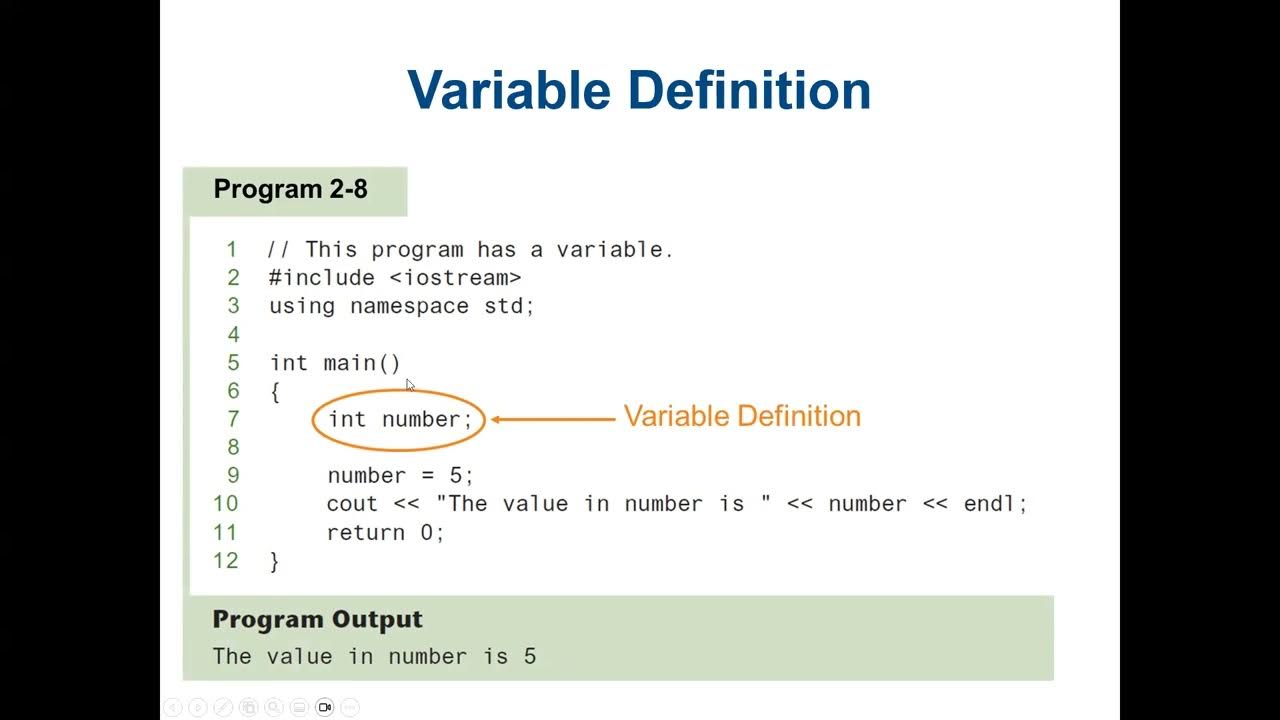Operator Overloading in C++ Programming | C++ Programming for Beginners
Summary
TLDRIn this C++ programming tutorial, Stan Meyer from Simple Snippets explores the concept of operator overloading, a feature that enhances the functionality of operators for user-defined types. The video begins with a theoretical overview, explaining how operator overloading allows developers to redefine operators' behavior for custom classes. Meyer then demonstrates a practical example using a 'Complex' class, showing how to overload the '+' operator to add two complex numbers. The tutorial includes coding along with the presenter, making it an interactive learning experience. The benefits of operator overloading, such as improved code readability and flexibility, are highlighted, making it easier to work with user-defined data types using standard operators.
Takeaways
- 😀 The video tutorial focuses on operator overloading in C++ programming.
- 🎯 Operator overloading allows the redefinition of built-in operators for user-defined types, enhancing functionality.
- 📚 The tutorial explains that operator overloading is a form of polymorphism, where operators can have new meanings.
- 🚫 There are exceptions to overloading, such as the scope resolution operator, sizeof, and the ternary operator.
- 💻 The tutorial demonstrates how to overload the '+' operator for a 'complex' class, which represents complex numbers with real and imaginary parts.
- 🔍 The script highlights the error that occurs when trying to use the '+' operator with user-defined objects without overloading.
- 🛠️ The process of overloading the '+' operator involves defining a special function within the class using the 'operator' keyword.
- 📝 The tutorial includes a practical example where complex numbers are added using the overloaded '+' operator.
- 📈 Operator overloading simplifies code by allowing the use of standard operators with custom data types, improving readability and flexibility.
- 👍 The presenter encourages viewers to subscribe to the channel for more computer science and information technology tutorials.
Q & A
What is the main topic of the video tutorial?
-The main topic of the video tutorial is operator overloading in C++ programming.
What is operator overloading in C++?
-Operator overloading in C++ allows you to specify more than one definition for an operator in the same scope, enhancing the functionality of the operators by redefining or overloading most of the built-in operators available in C++.
What are the exceptions to operator overloading in C++?
-In C++, you cannot overload the scope resolution operator (::), the sizeof operator, the member selector (.*), and the ternary operator (?:).
How does operator overloading relate to polymorphism?
-Operator overloading is a type of polymorphism where an operator is given a new definition and meaning, allowing it to work with user-defined types in addition to the built-in types.
Why is it necessary to overload the '+' operator for user-defined classes?
-It is necessary to overload the '+' operator for user-defined classes because the default behavior of the '+' operator does not understand how to handle objects of user-defined types, and overloading allows the operator to perform meaningful operations on these objects.
What is the purpose of the 'complex' class in the example provided?
-The 'complex' class in the example is used to represent complex numbers with real and imaginary parts, and serves as a demonstration of how operator overloading can be applied to enable arithmetic operations like addition on objects of this class.
How does the video demonstrate the use of operator overloading for the '+' operator?
-The video demonstrates operator overloading by creating a function within the 'complex' class that defines what the '+' operator should do when adding two 'complex' objects together, resulting in a new 'complex' object with the summed real and imaginary parts.
What is the advantage of operator overloading for user-defined types?
-The advantage of operator overloading for user-defined types is that it provides a more intuitive and flexible way to use operators with these types, making the code easier to understand and maintain, and allowing for more concise and readable expressions.
What is the difference between binary and unary operators in the context of operator overloading?
-Binary operators, like the '+' operator, require two operands for the operation, while unary operators, such as the increment (++) operator, require only one operand. The video tutorial specifically demonstrates the overloading of a binary operator.
How does the video tutorial help in understanding operator overloading both theoretically and practically?
-The video tutorial helps in understanding operator overloading by first explaining the theory behind it and then providing a practical example of how to overload the '+' operator for a 'complex' class, showing the implementation and the expected outcome.
Outlines

此内容仅限付费用户访问。 请升级后访问。
立即升级Mindmap

此内容仅限付费用户访问。 请升级后访问。
立即升级Keywords

此内容仅限付费用户访问。 请升级后访问。
立即升级Highlights

此内容仅限付费用户访问。 请升级后访问。
立即升级Transcripts

此内容仅限付费用户访问。 请升级后访问。
立即升级浏览更多相关视频

C_12 Arithmetic Operators in C Language | C Programming Tutorials

CPE 112 Lecture 18 - Unary Operators

Introduction to C++, The Parts of a C++ Program, Identifier Naming Rules, output statements

41. OCR A Level (H046-H446) SLR8 - 1.2 Introduction to programming part 2 variables & constants

Operators

C_14 Operators in C - Part 2 | Arithmetic & Assignment Operators | C Programming Tutorials
5.0 / 5 (0 votes)
